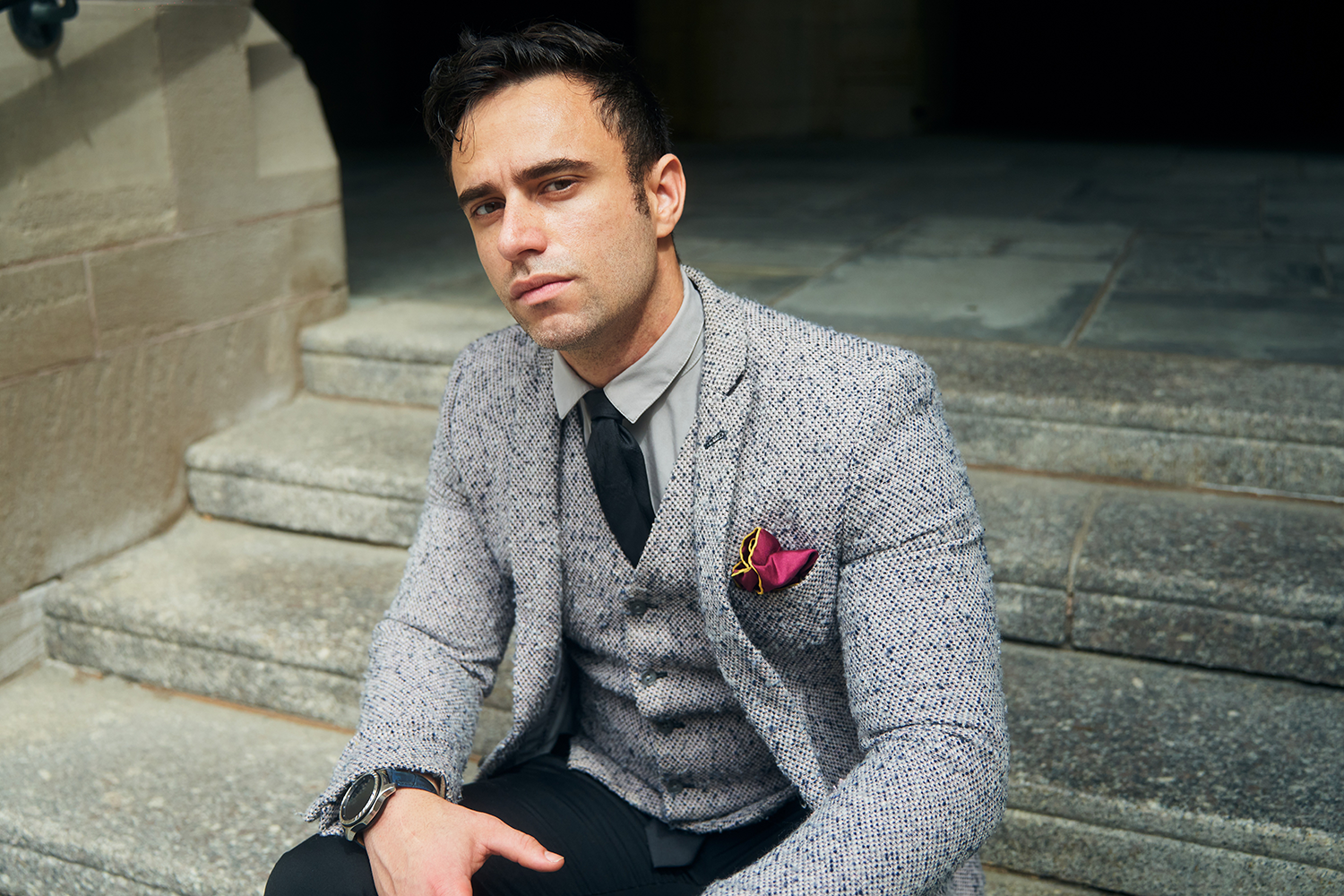Dieter Tejada ’13 (CLAS) was finishing his senior year at Norwalk High School, his acceptance to UConn in hand, when he found himself being arrested and charged with a felony.
The charge tied back to an altercation after a high school party when, outsized and unarmed, he’d defended himself against an attacker with a baseball bat.
“I was 17 years old and arrested,” Tejada says. “I had already been accepted to UConn. Is UConn going to pull the plug on me? One thing I am grateful for is UConn didn’t pull that acceptance.”
It was clear that Tejada had acted in self-defense, and he and his family tried to make that case, but, Tejada says, despite his innocence, he decided to submit a guilty plea and take a jail sentence, rather than face the prospect of a maximum 10-year prison sentence if found guilty at a trial.
On June 4, 2009, he pled guilty to felony assault in Fairfield County Superior Court and began his prison sentence. He was still enrolled at UConn and had to take a leave for the fall 2009 semester.
“I just wasn’t up for the task at that time — not mentally or emotionally,” Tejada says. “My mom was the main person in my corner. Most people don’t understand the law. Everybody thinks they know the law until they get arrested. They think they know how it’s gonna go. It’s not ‘Law and Order.’ I wasn’t even inside all that long, out on parole after five months, but I was different when I came out. I was shut off from emotions.”
Tejada’s career path started at UConn and went through law school at Vanderbilt University in Nashville, Tennessee. He is now the co-director and co-founder of National Justice Impact Bar Association and Justice Impact Alliance, organizations aimed at assisting people who have been impacted by the criminal justice system.
The first time he expressed an interest in becoming a lawyer, it was to a prison counselor, who laughed at him.
“When I went back to UConn, I chose political science, and I was able to go to UConn Stamford,” Tejada says. “I was on probation, so I could only be there during day classes, and I had a five-minute window to get home.” His probation conditions included wearing an ankle monitor.
Still, “it was an emotional boost,” says Tejada. “Once I had classes going again, it felt a lot better. I reminded myself I could be good in school.”
The return to college put Tejada in a routine of asking questions and trying to map out a path to a bachelor’s degree and law school admittance. It meant trying to follow established paths: Earn good grades, do extracurricular activities, and do well on the LSAT. He found it easier to work around barriers because he’d been through hardship and through the system itself. “People are basing their response to your plan on their experiences,” he says. “People just didn’t know. They hadn’t done it.”
But after graduation, he still had the conviction on his record. Finding employment proved challenging. “I was going to be a public defender, and I went to take the bar exam under the knowledge I wasn’t going to be licensed,” Tejada says. “I had to wait for the licensing bar to consider my case. I was told I could volunteer. That was a big hit — not being able to practice law.”
In 2018, Tejada had passed the bar exam, but could not be admitted to the bar with the conviction on his record. Then he obtained a new copy of his police report and discovered 20 additional pages of exculpatory evidence that had been withheld prior to his conviction. It gave him new hope for justice and a path to a law career. He and his attorneys from the Deskovic Foundation re-interviewed key witnesses and gathered additional evidence. In February 2023, civil rights attorney Alexander Taubes was able to file an application on Tejada’s behalf seeking an absolute pardon via the Connecticut Board of Pardons and Parole on innocence grounds.
“I was working full time and doing my own case,” Tejada says. “Trying to get things together — it was a long time of getting my hopes up. I finally had a path that had been taken by other exonerees, and I had a really good team.” On Sept. 6, 2023, the board unanimously granted a “full, complete, absolute and unconditional pardon.” This May, Tejada was given a special waiver by the New York Court of Appeals, which allows him to move forward with his dream of becoming an attorney as a licensed member of the New York State Bar Association.
“My case isn’t really about the time I spent in jail,” Tejada says. “It is more about lost opportunity. My hope is that this doesn’t happen to other people. It’s not fair. It’s unnecessary. We have to be better.”
By BRIAN HUDGINS
Photo by Ike Abakah

